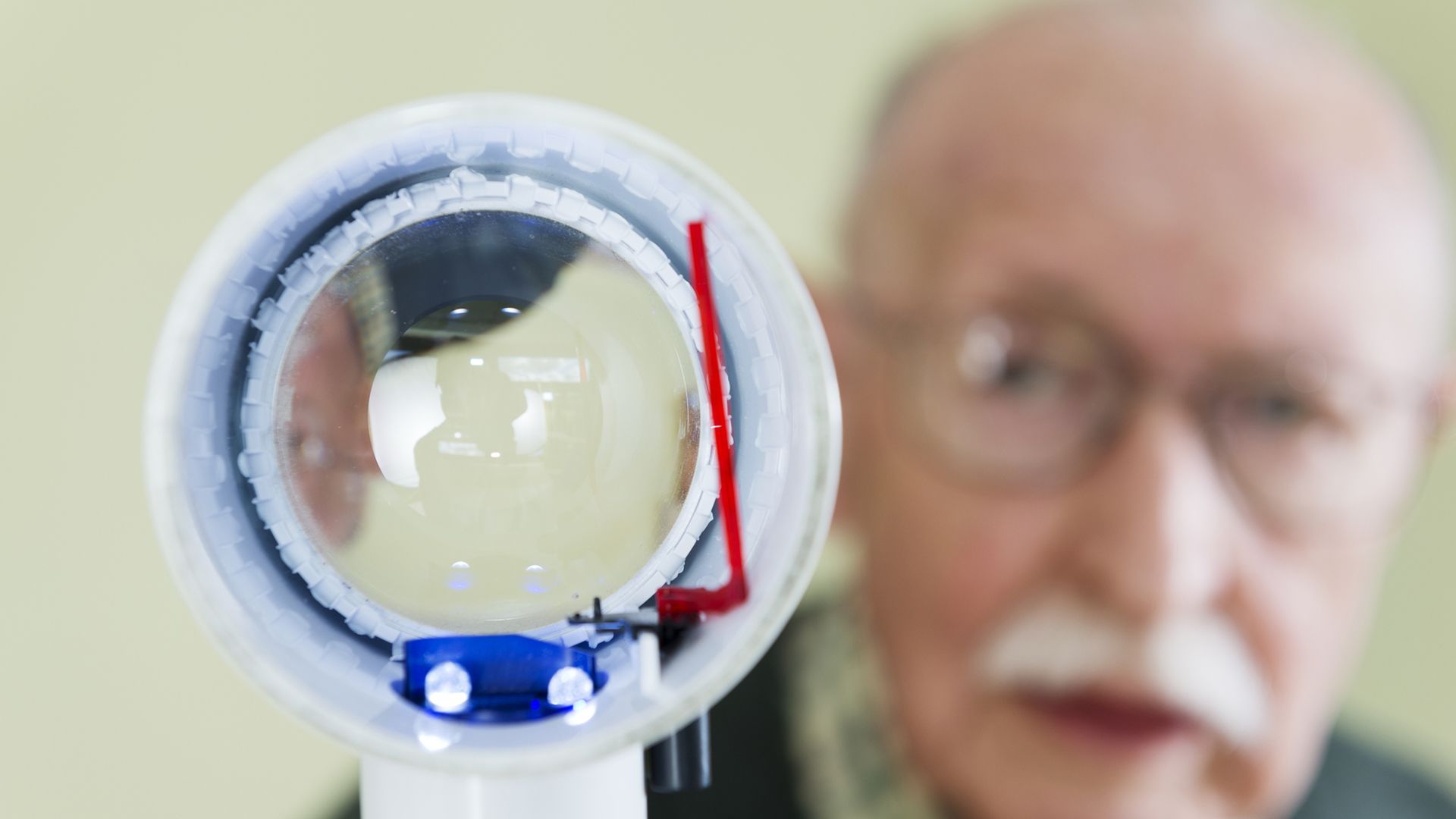Updated on September 3, 2024
The main treatment for neovascular age-related macular degeneration (AMD) is anti-VEGF therapy. Also known as wet AMD, neovascular AMD is an advanced form of age-related macular degeneration that involves the formation of abnormal blood vessels in the eye. These abnormal blood vessels leak blood and fluid into the eye. This impairs a person’s ability to clearly see objects and details with their central vision.
VEGF, or vascular endothelial growth factor, is a substance made by the body that helps repair and maintain blood vessels. People who have neovascular AMD have elevated levels of VEGF in the eyes, which contributes to the formation of abnormal blood vessels.
Anti-VEGF injections block VEGF from working, which helps slow or stop blood vessels from leaking. This can help prevent vision loss from getting worse. In many cases, vision improves.
Unfortunately, the out-of-pocket expenses associated with anti-VEGF injections prevent some people from receiving treatment.
Talking to your healthcare provider
If your healthcare provider has recommended anti-VEGF therapy but you have concerns about the out-of-pocket expenses, bring it up at your appointment. Your healthcare provider is there to help you find the best possible treatment for your eyes. An important part of treatment is addressing anything that prevents you from receiving treatment.
Finances can be a personal—and sometimes uncomfortable—topic to discuss. Here are some strategies that may help.
- The best time to have a conversation about the cost of treatment is before you begin treatment. If you have already started treatment, the best time to talk about a concern is as soon as possible.
- Prepare for your appointment, including taking the time to think about how you want to bring up the topic. It will be helpful to have notes or questions to refer to during the conversation. Prioritize talking about the cost of treatment.
- Calculate exactly what the cost will be for the recommended medication. This can involve talking to your healthcare provider, their staff, and your insurance provider. Know what this number is, and how it will impact other areas of your life.
- There are several different anti-VEGF medications available. Research what the different medications cost and compare. A good place to start is by contacting your health insurance provider and asking if there are price differences between different anti-VEGF medications. Know what the different medications will cost. Discuss this information with a healthcare provider.
- Look for discounts, such as copay cards and patient assistance programs. Many drug manufacturers have these types of financial assistance programs to help more people access medications they need. This information should be readily available on the drug manufacturer’s website.
- Look for other financial assistance resources, such as State Pharmaceutical Assistance Programs (SPAPs). Check for programs in your state by visiting the website for the National Conference of State Legislatures.
Another strategy is to ask your healthcare provider what they recommend. Your healthcare provider may have ideas or strategies they’ve used in the past to help people access care. For example, they may be able to begin therapy by administering a sample dose.






